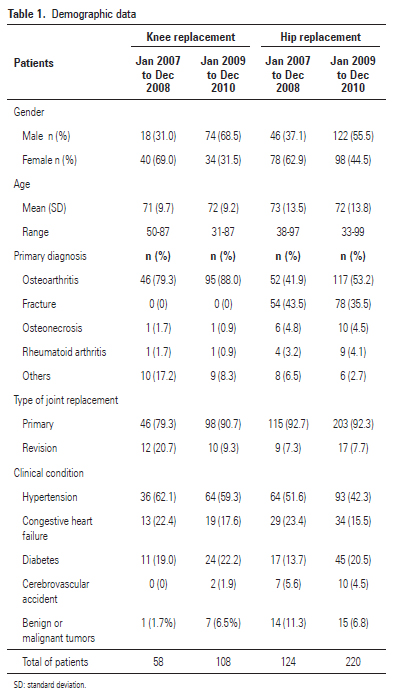OBJECTIVE: To describe the epidemiologic characteristics and adverse events of patients submitted to total hip and total knee replacement. METHODS: A cross-sectional study retrospectively assessing medical chart data of all total hip and total knee replacements performed at a private hospital, between January 2007 and December 2010 Patients submitted to total hip and total knee replacement, with consent of surgeons were included. Incomplete records and/or missing data of the hospital database were excluded. The categorical variables analyzed were age, gender, type of arthroplasty (primary or secondary), type of procedure, duration of surgery, use of drains, risk of infection, compliance to protocol for prevention of deep venous thrombosis and embolism pulmonary, and compliance to the protocol for prevention of infection. The outcomes assessed were adverse events after surgery. RESULTS: A total of 510 patients were included; in that, 166 admissions for knee replacements (92 male) and 344 admissions for hip replacements (176 female). The mean age of patients was 71 years (range 31-99 years). Adverse events were reported in 76 patients (14.9%); there was no correlation between assessed variables and number of complications. CONCLUSION: The results showed no individual factors favoring complications in patients submitted to total hip and total knee replacement; hence, surgeons should consider prophylaxis to avoid complications.
Arthroplasty, replacement, knee; Arthroplasty, replacement, knee; Arthroplasty, replacement, hip; Arthroplasty, replacement, hip; Risk factors; Cross-sectional studies




